Bill Gates: "The end of the epidemic, best case, is probably 2022"
From CNN's Andrea Diaz
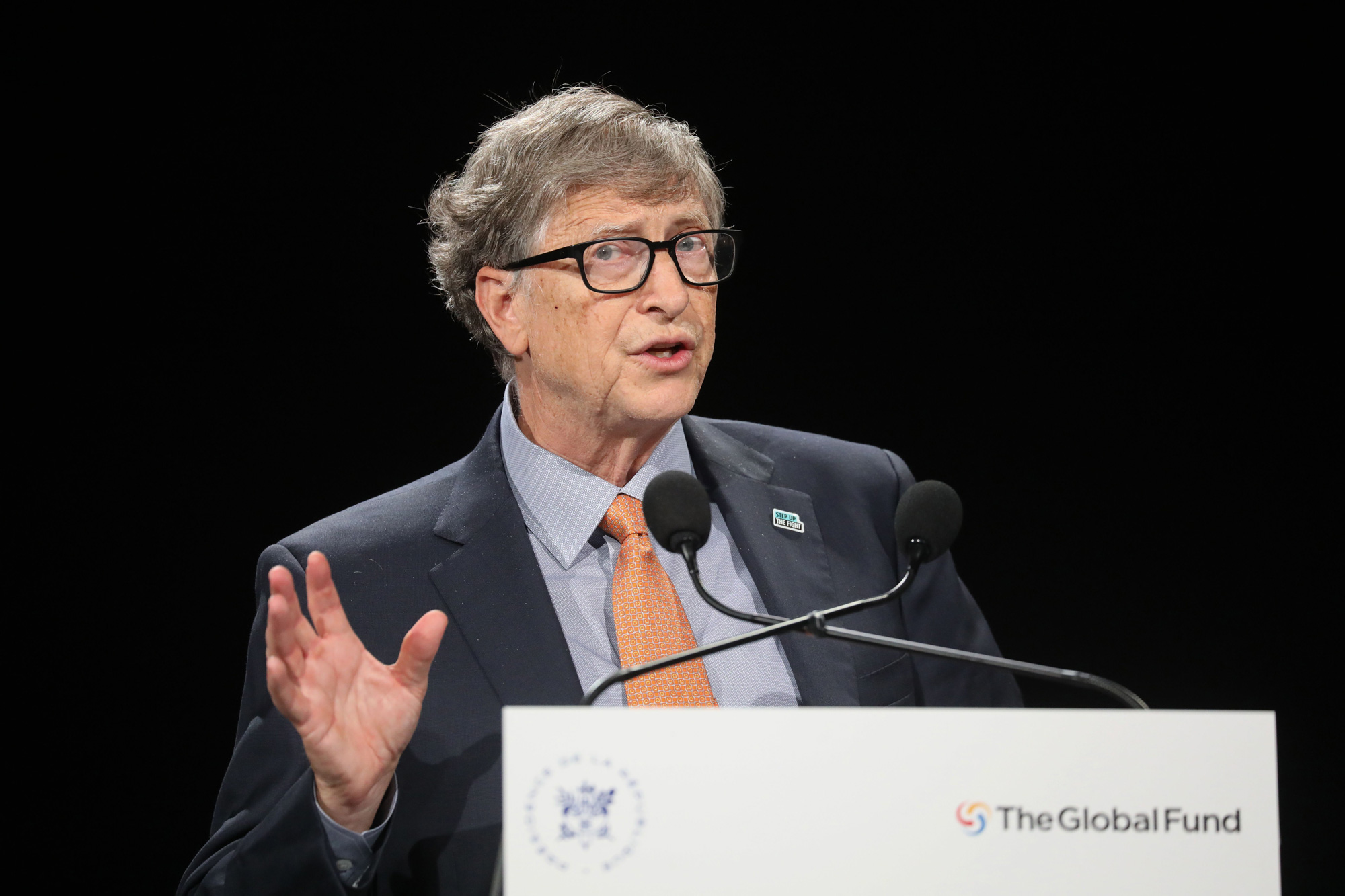 Bill Gates, founder of Microsoft and co-chair of the Bill and Melinda Gates Foundation, delivers a speech during the conference of Global Fund to Fight HIV, Tuberculosis and Malaria on October 10, 2019, in Lyon, France. Ludovic Marin/AFP/Getty Images
Bill Gates, founder of Microsoft and co-chair of the Bill and Melinda Gates Foundation, delivers a speech during the conference of Global Fund to Fight HIV, Tuberculosis and Malaria on October 10, 2019, in Lyon, France. Ludovic Marin/AFP/Getty ImagesBill Gates, founder of Microsoft and co-chair of the Bill and Melinda Gates Foundation, said that even though he expects vaccine approvals to come by early next year, and see the US begin to return to normal by summer 2021, he believes we will not see the end of the pandemic until 2022.
Gates also expressed his frustration with how the US has handled its approach to the pandemic.
"Unfortunately, we did a very poor job, and you could of see that in the numbers if you compare the Asian countries like South Korea and Australia," Gates said.
Additionally, Gates noted the way testing was handled at the beginning of the pandemic, and the way is still being handled today, played a big role in the spread of the virus in the US.
"You know what happened was that 40,000 people came out of China, because we didn't ban the residents and citizens from coming in. We created this rush. And we didn't have the ability to test or quarantine those people, so that seeded the disease here," Gates said. "Even today, people don't get their results in 24 hours, which is outrageous that we still have that."
"There's an unmistakable spike in new infections," former FDA commissioner says
From CNN Health’s Naomi Thomas
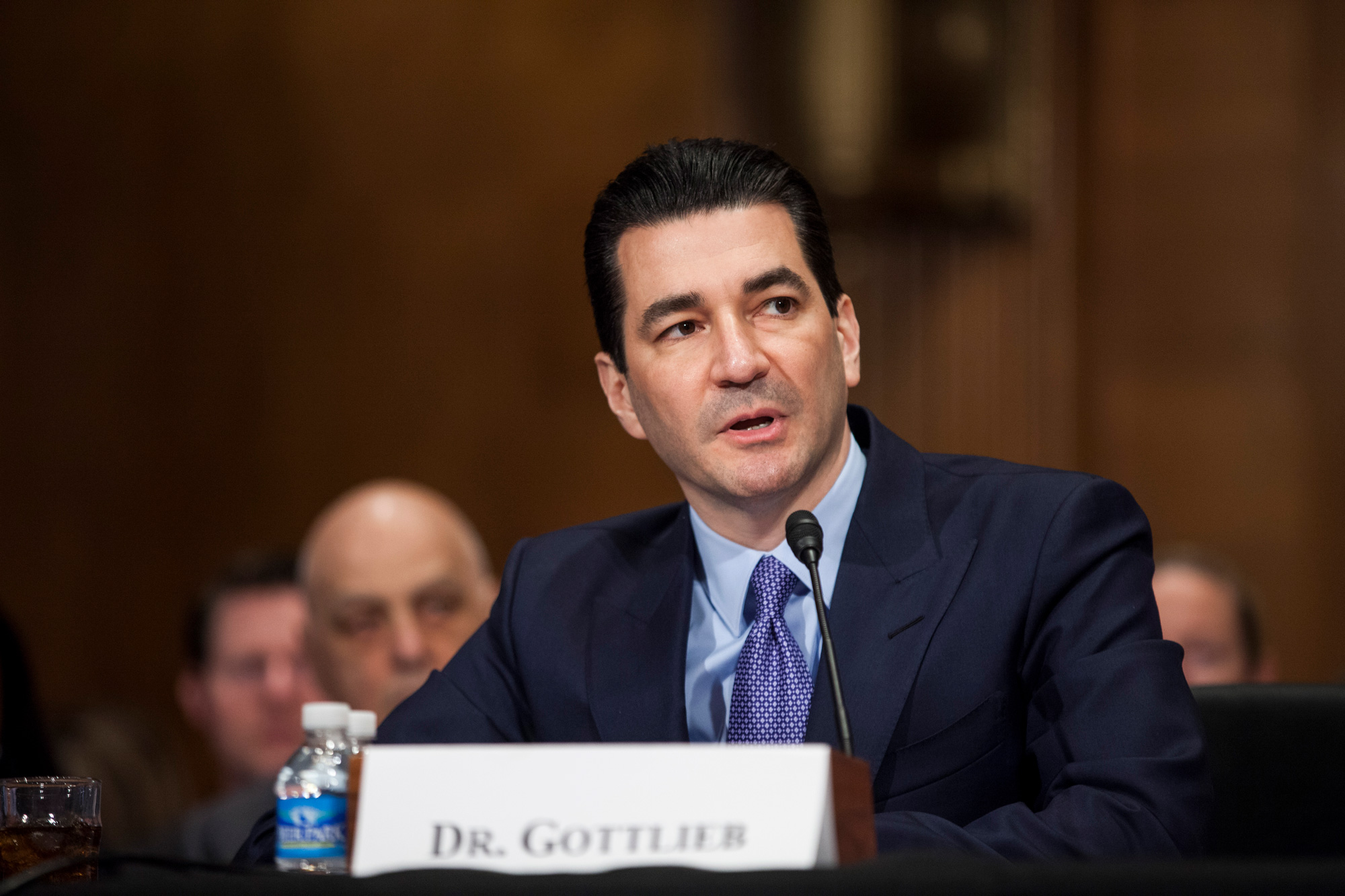 Dr. Scott Gottlieb, former commissioner of the US Food and Drug Administration, testifies during a Senate Health, Education, Labor and Pensions Committee hearing on April 5, 2017, on Capitol Hill in Washington, D.C. Zach Gibson/Getty Images
Dr. Scott Gottlieb, former commissioner of the US Food and Drug Administration, testifies during a Senate Health, Education, Labor and Pensions Committee hearing on April 5, 2017, on Capitol Hill in Washington, D.C. Zach Gibson/Getty ImagesThere is an unmistakable spike in new Covid-19 infections in the US, which is concerning as the country heads into fall and winter, Dr. Scott Gottlieb, former commissioner of the US Food and Drug Administration, said on CBS's "Face the Nation" on Sunday.
"Well, I think we have at least one more cycle with this virus heading into the fall and winter," Gottlieb said. "If you look what's happening around the country right now, there's an unmistakable spike in new infections."
Gottlieb also said the declines in hospitalizations that have been seen over the summer are starting to level off – and that he would expect them to start going up again.
There are about 15 states, he said, that have a positivity rate of 10% or higher, "which is deeply concerning," and about 30 states where the R rate, or rate of transfer, is above one, "meaning they have an expanding epidemic."
It is unclear whether this resurgence of infection is a post Labor Day bump that will start to level off, or the beginning of a resurgence heading into fall and winter, he said, "but I'm deeply concerned that, as we head into the fall and the winter, this is the season when a respiratory pathogen like coronavirus wants to spread, and so there's a lot of risk heading into this season."
Complacency "a real setup for risk": Gottlieb said another concern is that as people start to get a little bit more complacent, due to exhaustion from what the population has been going through, and start going back to school, college and work against the backdrop of fall and winter when people start going inside more due to the weather, "that’s a real setup for risk," he said.
The UK's doubling coronavirus cases mean Boris Johnson can't wake up from his Covid-19 nightmare
From CNN's Luke McGee in London
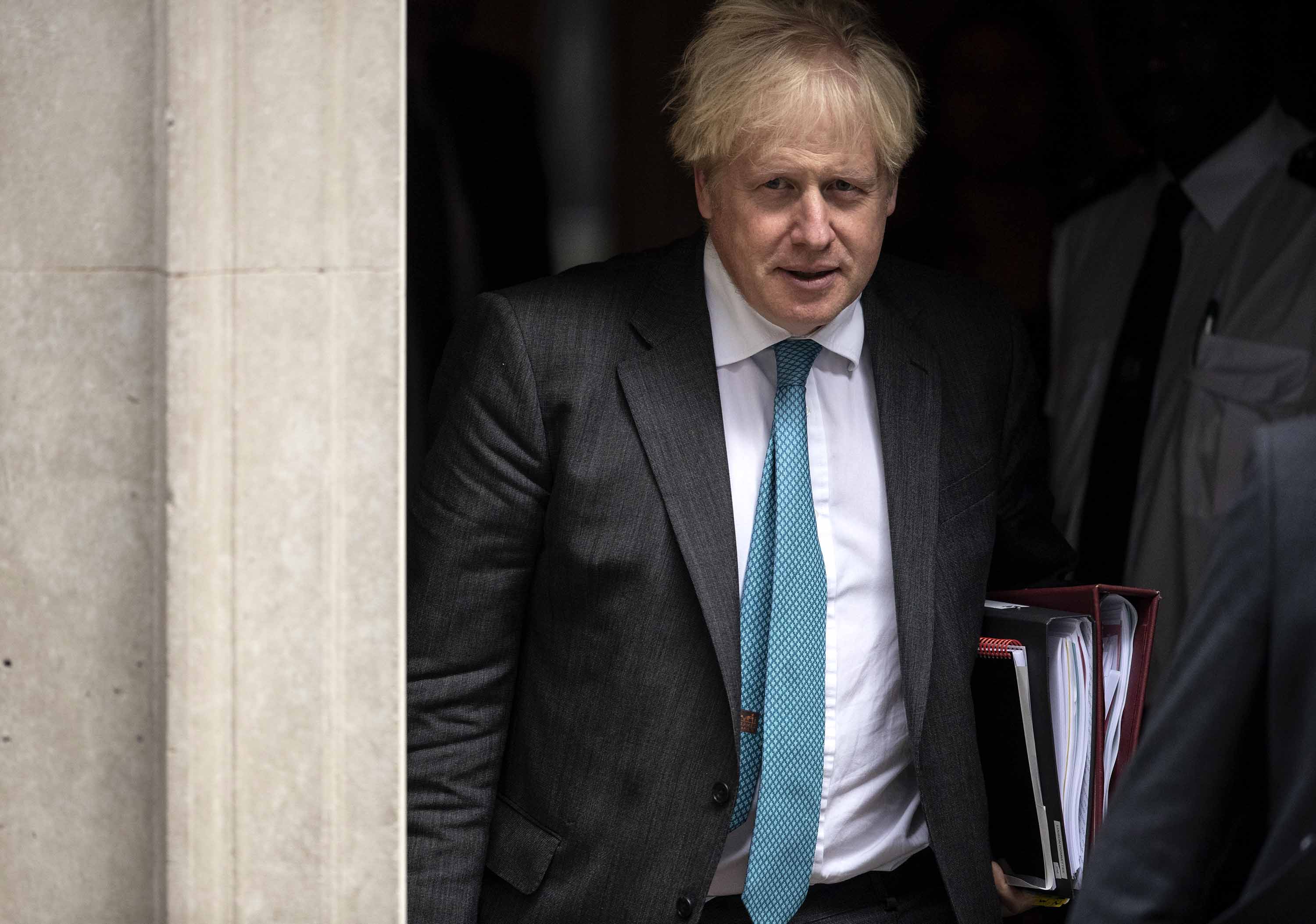 British Prime Minister Boris Johnson leaves Downing Street in London to attend the weekly Prime Ministers Questions session on September 16. Dan Kitwood/Getty Images
British Prime Minister Boris Johnson leaves Downing Street in London to attend the weekly Prime Ministers Questions session on September 16. Dan Kitwood/Getty ImagesThe number of coronavirus cases in the UK is doubling roughly every seven days, according to the country's chief scientific advisor, Patrick Vallance. If that rate continues to grow unabated, "by mid-October you would end up with something like 50,000 per day," which "could lead to 200 deaths a day" by November, Vallance warned at a Monday press briefing.
"If we don't act, the virus will take off," Vallance's colleague Chris Whitty, the UK's chief medical officer, told the same briefing in Downing Street. "That is the path we are on and if we do not change course, we will find ourselves in a difficult problem."
The advisors' comments have fueled speculation that the government is preparing the ground for a second national lockdown, or other hard measures, in order to get cases back to a sustainable level.
"In ... the next six months, I think we have to realize that we have to take this collectively very seriously," Whitty said, adding that the country had turned a corner "in a bad sense."
Prime Minister Boris Johnson is expected to make a statement to the country later this week.
It's just after 1 p.m. in London and 8 a.m. in New York. Here's the latest on the pandemic in Europe
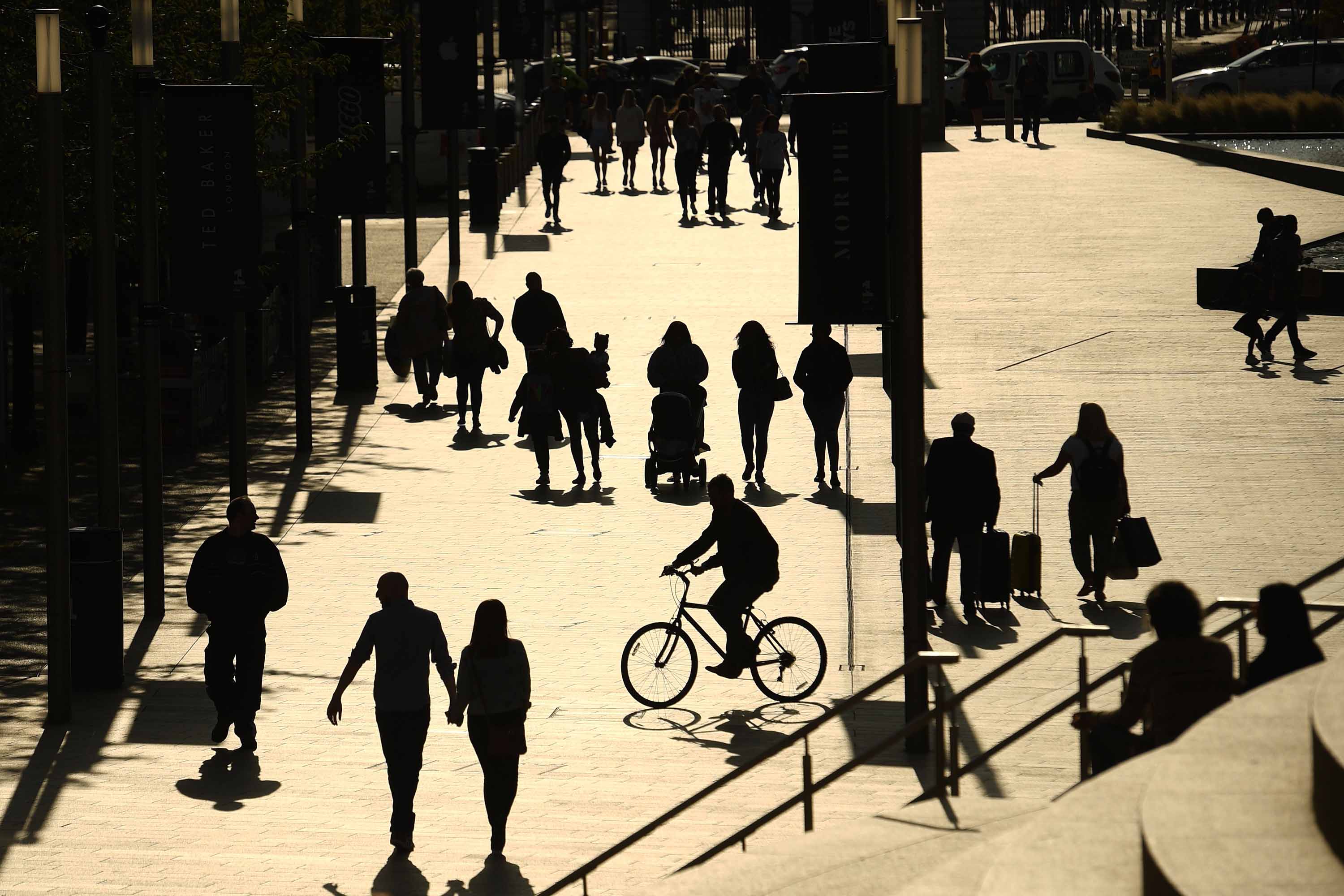 People are silhouetted against the late summer sun in Liverpool, England on September 18, after the British government imposed fresh restrictions on the city following a rise in coronavirus cases. Oli Scarff/AFP/Getty Images
People are silhouetted against the late summer sun in Liverpool, England on September 18, after the British government imposed fresh restrictions on the city following a rise in coronavirus cases. Oli Scarff/AFP/Getty ImagesGlobally, there have been more than 31 million confirmed cases of coronavirus, and more than 961,000 people have died, according to figures from Johns Hopkins University.
After successfully tamping down the first surge of infections and deaths from the virus, Europe is now in the middle of a second Covid-19 wave.
Austria: Several new restrictions aimed at events and socializing have come into force in Austria, as Covid-19 cases there rise, the country's health ministry announced.
As of Monday, a 1 a.m. curfew will be in place for all events and eating establishments. Indoor events without assigned seating are to be limited to 10 people, and outdoor events to 100.
Mask wearing is to be made mandatory in more public areas such as public transport, indoor and outdoor markets, as well as for staff and visitors to indoor restaurants (except when sitting at a table to eat), says the ministry's website.
The country has seen a rising number of cases this month. Austria has recorded a total of 38,794 coronavirus cases so far, according to its health ministry. The capital Vienna is worst affected, with 13,301 cases.
Several parts of Austria have been classified as "orange" areas under the country’s pandemic traffic light system, indicating a "high risk." According to the country's health ministry "orange" areas have a high 7-day incidence of the virus, relative to the size of the population.
Germany: Germany is aiming to introduce additional measures to fight Covid-19 this fall.
In an interview with the Rheinische Post newspaper, Health Minister Jens Spahn highlighted the introduction of so-called "temperature ambulances," locations where those with coronavirus symptoms can get on-the-spot tests.
Spahn also spoke about the need to get more fast testing underway.
So far, 272,337 people in Germany have been infected with the virus -- 922 new cases were reported on Sunday, according to the Robert-Koch institute (RKI), Germany's federal agency for disease control and prevention. According to the RKI, a total of 9,386 people have died of the disease; there have been no new fatalities in the last 24 hours.
Meanwhile, the German city of Munich is to make mask wearing mandatory in busy areas, its mayor said Monday.
Mayor Dieter Reiter said masks would become mandatory from Thursday, unless the incidence-rate -- which stood at 55.59 per 100,000 inhabitants on Saturday -- drops by then.
Meanwhile, the number of people who can meet in the city -- either privately at home, or in a pub or restaurant -- will be restricted to five, or two households.
Czech Republic: The Czech Health Minister Adam Vojtěch has resigned, a spokeswoman for the ministry has confirmed.
"Minister Vojtěch resigned. He wants to create space for a new solution to the coronavirus epidemic," Gabriela Štěpanyová told CNN by text. "He came to the ministry to push for systemic conceptual changes, but the coronavirus epidemic does not allow him to complete the task."
Coronavirus case numbers have risen starkly in the Czech Republic in recent weeks, to levels several times higher than during the Spring peak.
As a result of the increase, rules on the use of masks were tightened last week. Starting Friday, face coverings are mandatory for all students and staff everywhere in schools, with only the youngest children exempt from the rules. Previously, masks were compulsory in corridors and common areas, but not in classrooms.
France: Coronavirus cases are rising starkly in France, according to Sante Publique France, the French public health authority, with a total of 453,763 cases so far, and 10,569 new cases in the 24 hours to Sunday evening.
Twelve new deaths were recorded in the 24 hours to Sunday night, bringing the total number of Covid-19 fatalities in France up to 31,285.
Test positivity stands at 5.7%, according to the health authority, which said 3,894 people with the virus had been admitted to hospital in the last seven days; 593 of those are in ICU.
As many as 1,045 clusters -- in Paris, Lyon, Marseille, Bordeaux and Lille, among other locations -- are currently being investigated, the health authority said.
United Kingdom: The UK has "in a bad sense, recently turned a corner" in the coronavirus pandemic, UK chief medical adviser Chris Whitty said Monday, at a special briefing alongside chief scientific adviser Patrick Vallance.
Coronavirus cases are on the increase across the UK, and Vallance and Whitty -- the country's leading medical experts -- warned that, as the weather turns colder, the situation is likely to worsen.
Vallance said infections were increasing across all age groups, with the highest rise among 20- to 29-year-olds. Whitty said the virus was likely to be a serious concern for the next six months, during the annual winter flu season.
Covid-19 Prevention Network to encourage Black people to participate in vaccine trials
From CNN Health’s Naomi Thomas and Elizabeth Cohen
The Covid-19 Prevention Network, a group formed by the US' National Institute of Allergy and Infectious Diseases to respond to the global pandemic, will host its first event Thursday to encourage Black people to participate in vaccine trials.
The network has already taken out a series of advertisements to encourage minority participation in the trial. Thursday's event, called "COVID in Black," is an interactive discussion where participants can communicate via Zoom and Facebook with Black doctors and experts.
The online events are expected to be held monthly, according to Stephaun Wallace, director of external relations at the Covid-19 Prevention Network.
Vaccine trials struggled to recruit minorities, including Black people.
Minority participation in vaccine trials has improved in the past month, but it is still not as high as public health leaders would like.
On Thursday the experts will share information about the current and planned clinical trials, not just to encourage Black enrolment, but also to encourage Black people to take the vaccine once it's on the market.
"Having conversations in communities about black folks' engagement in medicine and medical establishments is really a part of this as well," Wallace told CNN.
Black enrolment remains low: Dr. Anthony Fauci, director of NIAID, has urged that at least 27% of volunteers in vaccine clinical trials be Black, but enrolments aren’t reaching that level.
Black participants made up 13% of Moderna’s new enrolments for the week of September 14, according to the company. In Pfizer’s US trial, 8% of the volunteers are Black, according to the company.
People can volunteer for coronavirus vaccine trials on the Covid-19 Prevention Network’s website. Currently, 3% of the 407,000 people who have registered on the site have been Black, according to a spokesperson for the network.
Assisted living facilities and nursing homes with higher numbers of minority residents are more likely to have more Covid-19 cases, research finds
From CNN Health's Naomi Thomas
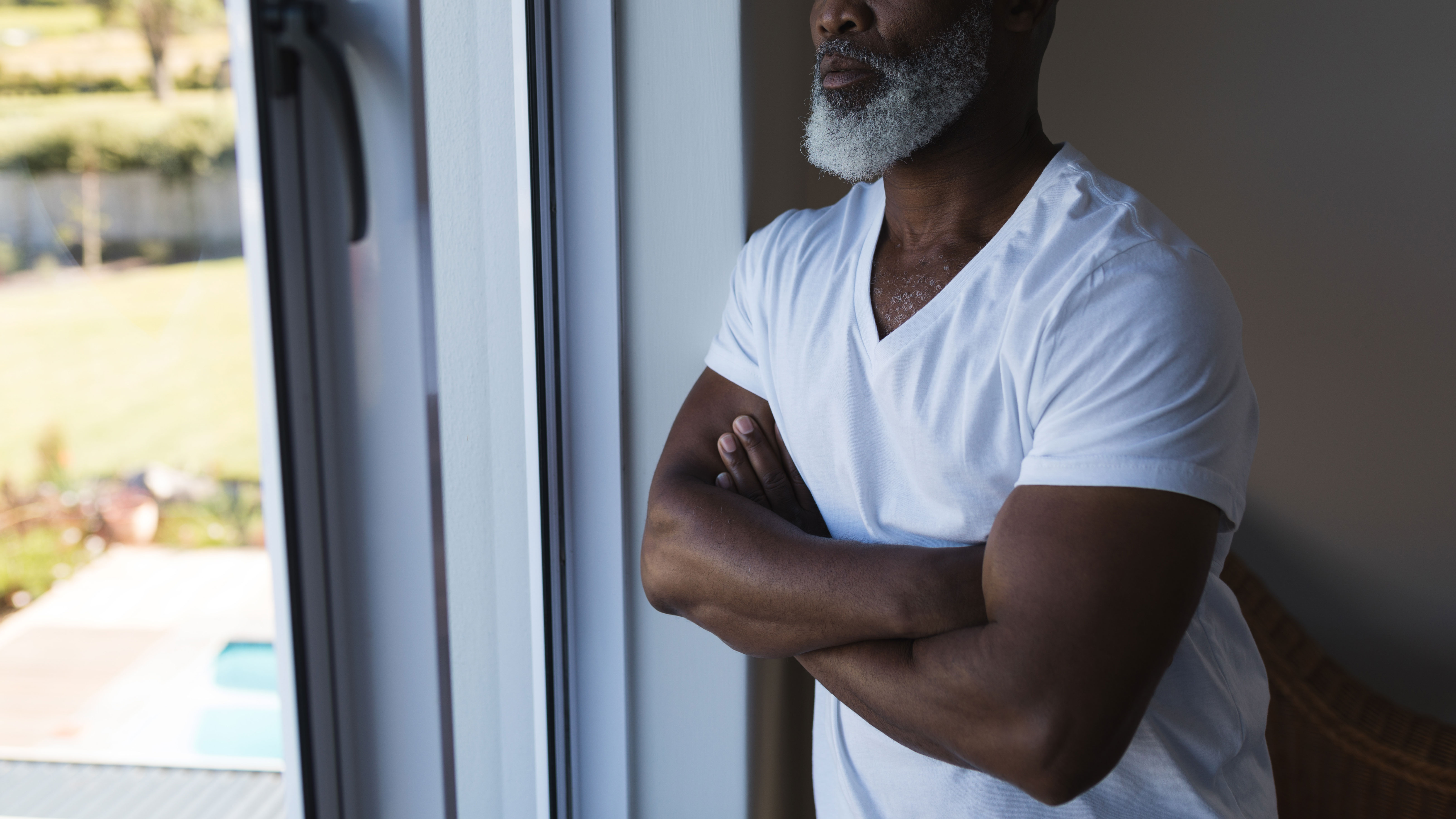 Two studies published Monday found that nursing homes and assisted living facilities with higher proportions of minority residents are more likely to have more Covid-19 cases. Shutterstock
Two studies published Monday found that nursing homes and assisted living facilities with higher proportions of minority residents are more likely to have more Covid-19 cases. ShutterstockNursing homes and assisted living facilities with higher proportions of minority residents are more likely to have more Covid-19 cases, according to two new studies published Monday in the Journal of the American Geriatrics Society.
The first, from the University of Rochester Medical Center, looked at 12,576 nursing homes that passed the Centers for Medicare and Medicaid Services' quality assurance check for submitted data and reported to CMS’ Nursing Home Covid-19 Public File for the week ending May 31.
"Nursing homes caring for disproportionately more racial/ethnic minority residents tended to have more new Covid-19 confirmed cases among their residents and staff, and more new Covid-19 related deaths among residents," Yu Lie and colleagues at the Department of Public Health Sciences, Division of Health Policy and Outcomes Research said.
Predicted counts of cases and deaths per facility were two to four times as high in nursing homes that had the highest proportions of racial/ethnic minority residents, compared to those with low proportions.
The second study, from the University of Rochester School of Medicine and Dentistry, looked at data on confirmed Covid-19 cases and deaths through May 29, from 3,994 assisted living facilities, with 2,542 cases and 675 deaths in seven states.
“As in nursing homes, AL [assisted living] communities with a higher proportion of minority residents tend to have a higher count of Covid-19 cases,” Helena Temkin-Greener and colleagues from the Department of Public Health Sciences wrote.
They found that assisted living facilities with higher proportions of Black/Hispanic residents had more Covid-19 cases, as did communities with higher proportions of residents with dementia, COPD and obesity, and a higher proportions of men.
Assisted living facilities had a case fatality rate that was four times higher than the average across the seven states included in the study, even though fewer than 10% of them reported being affected by the pandemic.
They also found that larger assisted living facilities appeared to be more likely to experience at least one Covid-19 case, but they are not necessarily more likely to experience a greater number of cases.
Jacinda Ardern apologizes for taking selfies, not wearing a mask and flouting social distancing rules
From CNN's Vanesse Chan
New Zealand's Prime Minister Jacinda Ardern has apologized for taking selfies, flouting social distancing rules, and not wearing a mask while on the campaign trail.
Ardern took a selfie with a large group of students who were huddled closely together, not wearing masks, last Thursday.
She took another selfie with construction workers; again, no one was wearing a mask.
The second instance drew criticism, since it came as Ardern announced that lockdown restrictions would remain in place for Auckland.
"In that particular photo I did make a mistake, I should have stepped further forward. I should have asked him to step apart from each other, and I acknowledge that," she said.
"It is hard," she added, pledging to "keep up ... those awkward moments where I refuse to shake hands."
National leader Judith Collins, who is also on the campaign trail, said in a press conference that she was "staggered" to see photos of the Labour leader taken last week.
An opposition politician tweeted on September 19 criticizing Ardern for posing closely with students on the campaign trail. David Seymour, MP for Epsom, posted: "Hospitality businesses can't make money at Level 2 because of single server and social distancing rules. Meanwhile, the person responsible for the rules is self-serving and not social distancing."
In the same press conference, Ardern said that "our actions collectively have managed to get the virus under control. With no new cases in the country today and no new cases for seven days linked to the Auckland cluster we are in a strong position to make our next move, down our alert settings."
Mandatory mask wearing introduced in parts of Munich
From CNN's Stephanie Halasz
The German city of Munich is to make mask wearing mandatory in busy areas, its mayor said Monday.
Munich is the capital of Bavaria, Germany’s most Southern state, and has been hard-hit by coronavirus because of its location, and its status a transit point for travelers heading north.
Dieter Reiter said masks would become mandatory from Thursday, unless the incidence-rate -- which stood at 55.59 per 100,000 inhabitants on Saturday -- drops by then.
In addition, the number of people who can meet -- either privately at home, or in a pub or restaurant -- will be restricted to five, or two households.
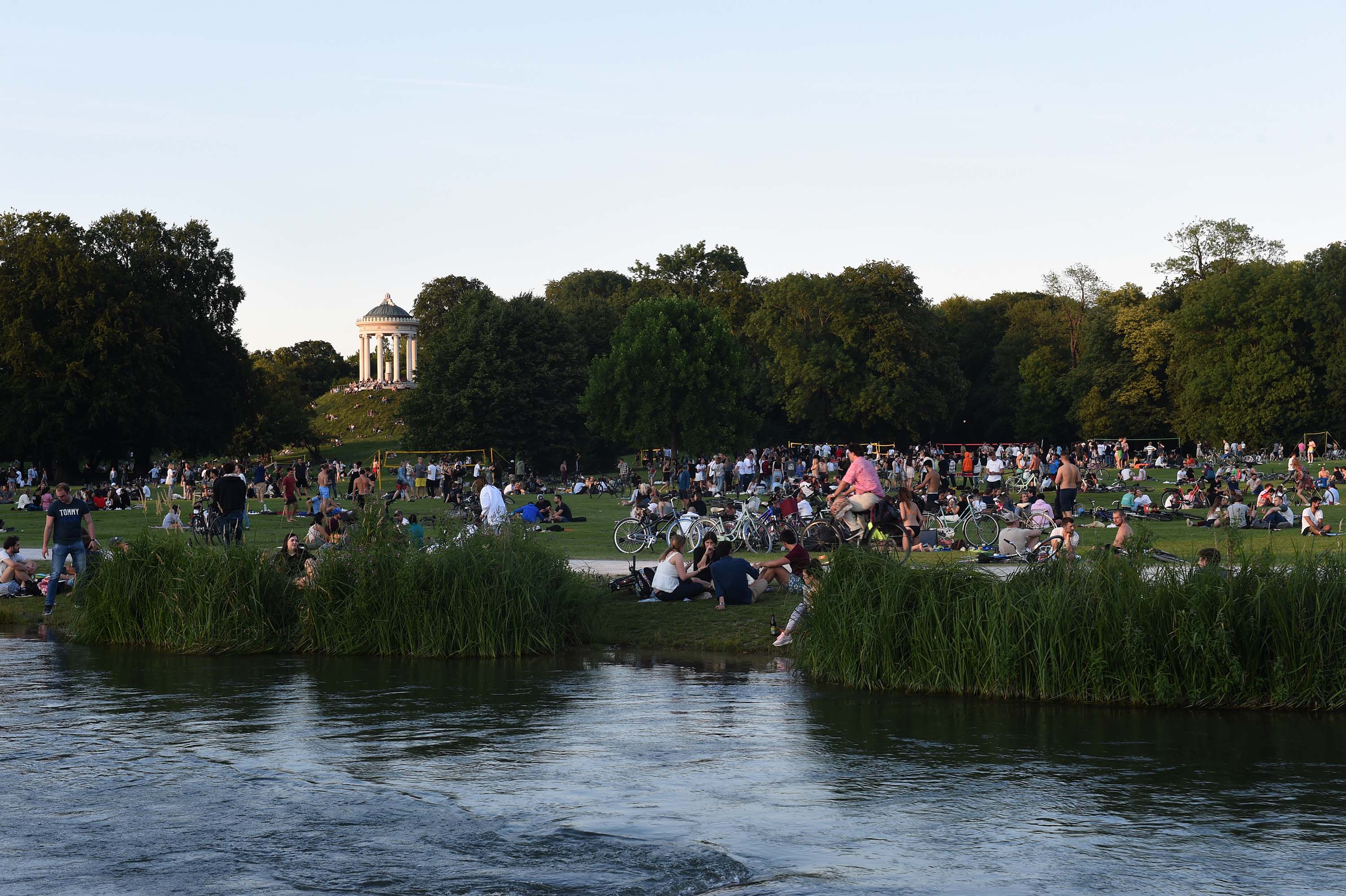 People enjoy a summer evening outdoors at the English Garden in Munich, Germany, on July 14. Felix Hörhager/picture alliance via Getty Image
People enjoy a summer evening outdoors at the English Garden in Munich, Germany, on July 14. Felix Hörhager/picture alliance via Getty ImagePrivate festivities will be limited to 25 people indoors, and 50 outdoors, Reiter said.
The mayor added that these measures would stay in place for seven days, in order for authorities to establish whether they are producing results.
Munich’s R-rate was 1.12 on Saturday, according to the City of Munich website.
Some limited vaccines could be available before the end of the year, UK's chief scientific advisor says
From CNN's Richard Greene
It is possible some limited vaccines will be available for small groups of people before the end of the year, the UK's chief scientific advisor Patrick Vallance said Monday.
But Vallance said it was more likely that vaccines would not be widely available before the first half of next year, if then.

 5 years ago
948
5 years ago
948 

